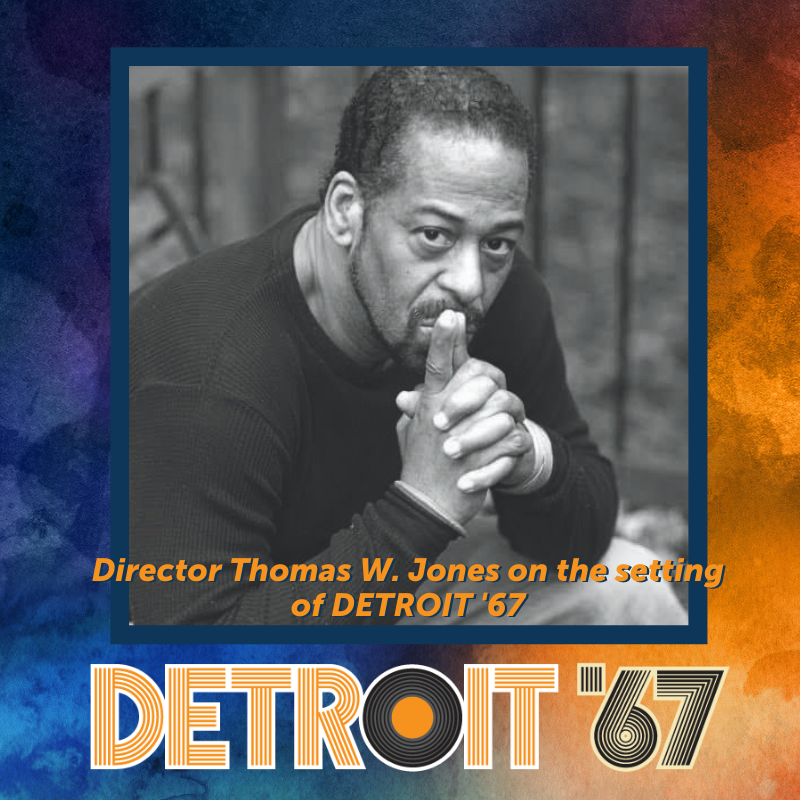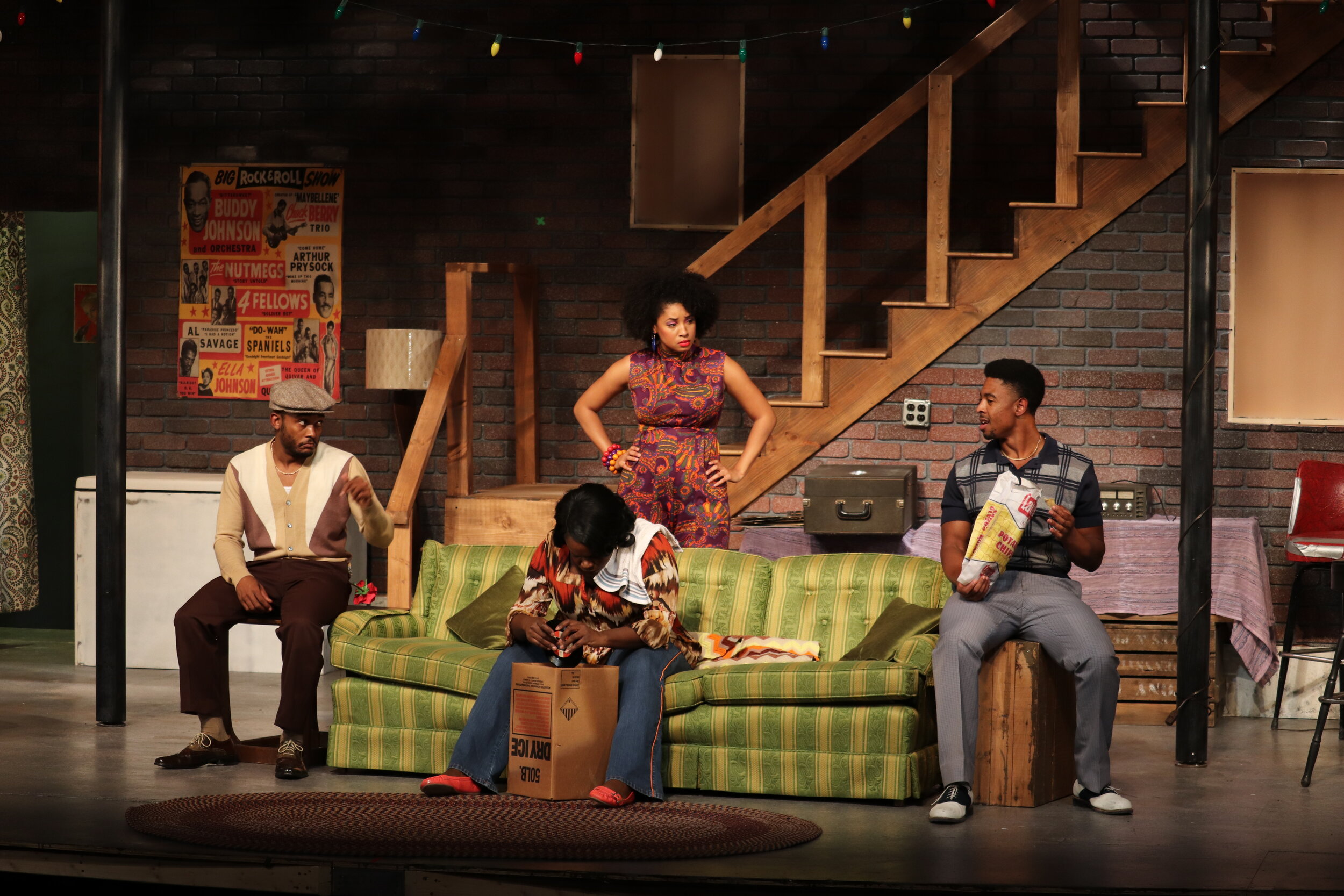Rehearsal photo of Detroit ‘67. Pictured: Freddie Fulton, Lisa Tharps, Shenyse Leanna Harris, Bryce Michael Wood. Set design by Matthew Allar, Costumes by Nyrobi Moss. Photo by Crystal Tuxhorn
There were new manufacturing jobs in Detroit, and with that came people moving out of apartment-like and project-like homes into two-story and one-story homes. With a home came a space called “a basement”, which for Black middle-class life (and for my life growing up) was a repository of dreams. It was a place where you went to imagine something about yourself that you either took to the outside world or that the outside world prevented you from doing or from becoming. I was a rock star—I was Michael Jackson in the Jackson 5 in my basement.
It wasn’t the living room, because in a Black family’s house, there is no living in the living room. You had plastic seat covers on the couch that never came off and it was only reserved for company. When you ate, you didn’t eat in the dining room, you ate in the room that was off the kitchen. The dining room was for special occasions, like anniversaries or Christmas or Thanksgiving. You didn’t eat off the good china. If you had an attic, it was always the extra bedroom for some relative that was going to move in with you. Or you then had to move into that room because the relative did move in and all of a sudden you lost your room.
So the basement was the place to dream. A place where you went to recover, where you went to hibernate. I was sharing today that Ralph Ellison’s central character in “Invisible Man” starts in a basement. And what he says about it, is that hibernation is a covert preparation for a more overt act. That’s what I think basements were, a place where we could recover, a place where we dreamt new things about ourselves, a place where we thought and imagined ourselves to be, a place where we invited friends, a place where you had a rent party, a place where you had a New Year’s Eve party, a place where you had a blue lights in the basement party. It was a repository for our dreams.
It’s not by accident I think that Dominique Morisseau sets the play in a basement. It’s why she sets Paradise Blue in a club; what do those things represent? But that is a wonderful, magical part of this piece and what that basement is. When you come to Detroit ‘67, you watch these characters really exploring their dream selves in that place.
Detroit ‘67 begins performances on October 23 with an official opening of October 26, and continues performances through November 10. Get your tickets here.


